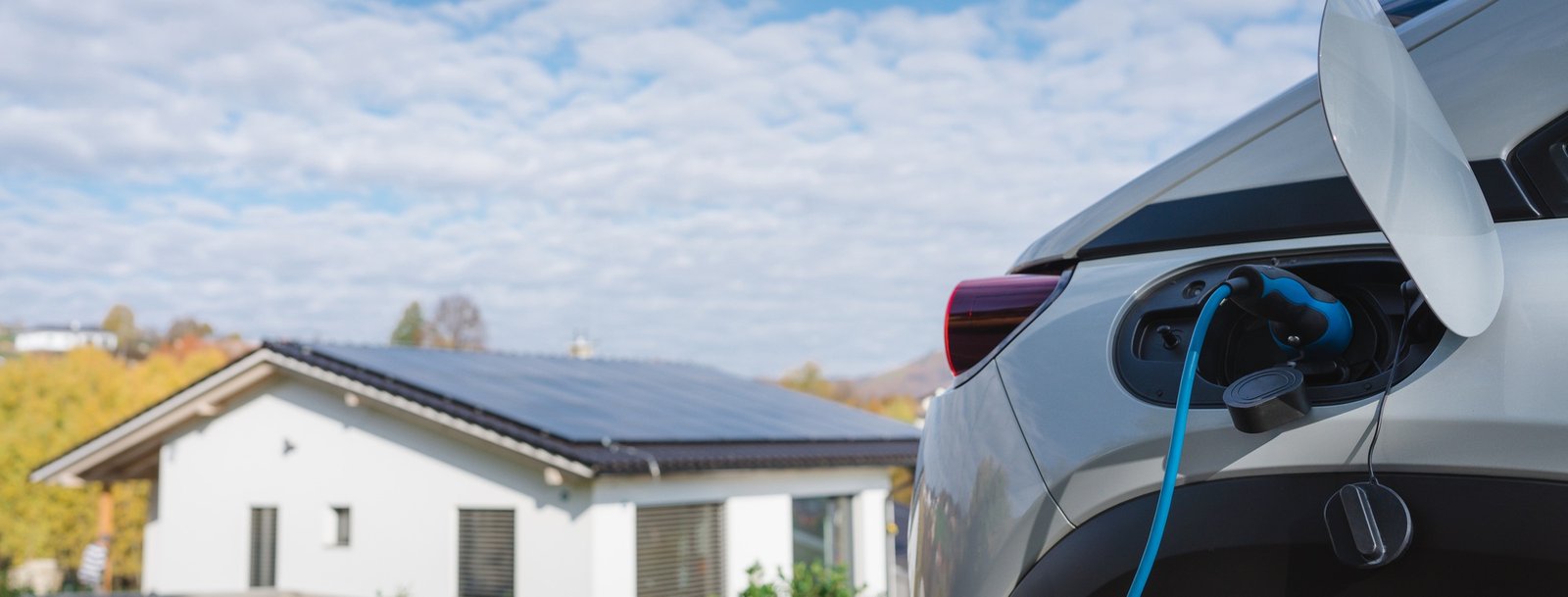Problem: You’re considering an electric vehicle, but unsure about the charging situation. Is a home charger a must-have, or just a pricey add-on?
Answer: You don’t absolutely need a home charger, but for most EV owners, it dramatically improves the ownership experience. It provides unparalleled convenience and control over your charging.
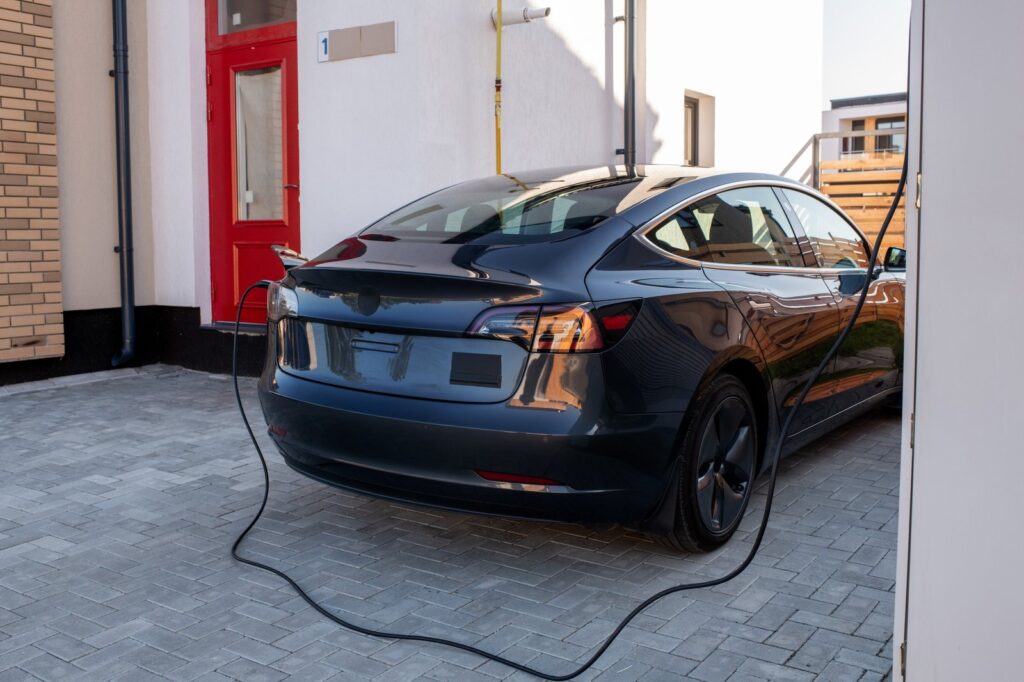
Transition: Let’s dig a little deeper. We’ll see the advantages of home charging and see situations where a home EV charger may be helpful.
Do I Really Need to Install an Electric Vehicle Charging Station at Home?
Problem: You can technically charge an EV using public chargers, but you don’t know how practical this would be.
Answer: Relying solely on public charging can work, but it introduces challenges with time, cost, and daily planning. Your routine becomes dependent on charger availability.
Home Charging Station VS Public Charging Station: Which is More Suitable for Me?
| Feature | Home Charging (Level 2) | Public Charging (Level 2 & DC Fast) |
| Convenience | Charge anytime, overnight. | Need to find, potentially wait for, a charger. |
| Cost | Generally cheaper (off-peak rates). | Often more expensive, especially DC fast charging. |
| Time | Slower, but charges while you sleep. | Level 2: Similar to home. DC Fast: Much faster, but… |
| Battery Health | Gentler on the battery. | Frequent DC fast charging can degrade the battery faster. |
| Flexibility | Charge whenever you need. | Limited by charger location and availability. |
- Workplace Charging: If available, a great option.
- Public Charging Networks: Use Level 2 and DC fast chargers. Apps help locate them.
- Destination Charging: Charge at stores, gyms, etc.
- Community Charging: shared chargers for resident use in some areas.
- Portable Chargers: There are units you can carry with you.
- Home delivery charging: Mobile charging services are becoming available in some cities.
In What Situations is a Home Charging Station “Essential”?
- Long Commute/High Mileage: Level 1 charging won’t keep up.
- Irregular Schedule: Need the flexibility to charge on demand.
- Larger Battery EVs: Level 1 charging becomes impractical.
- Cold Climates: Mitigates range loss due to cold weather.
- Battery Health: It’s easy to keep the battery charged to an optimal level.
What Types of Home Electric Vehicle Charging Stations Are There? How Do I Choose?
Problem: With all the tech jargon, different Levels, and connectors, you are feeling a bit confused.
Answer: Level 2 chargers (240V) are the most common for home use, offering a good balance of charging speed and cost. Connector type depends on your EV model.
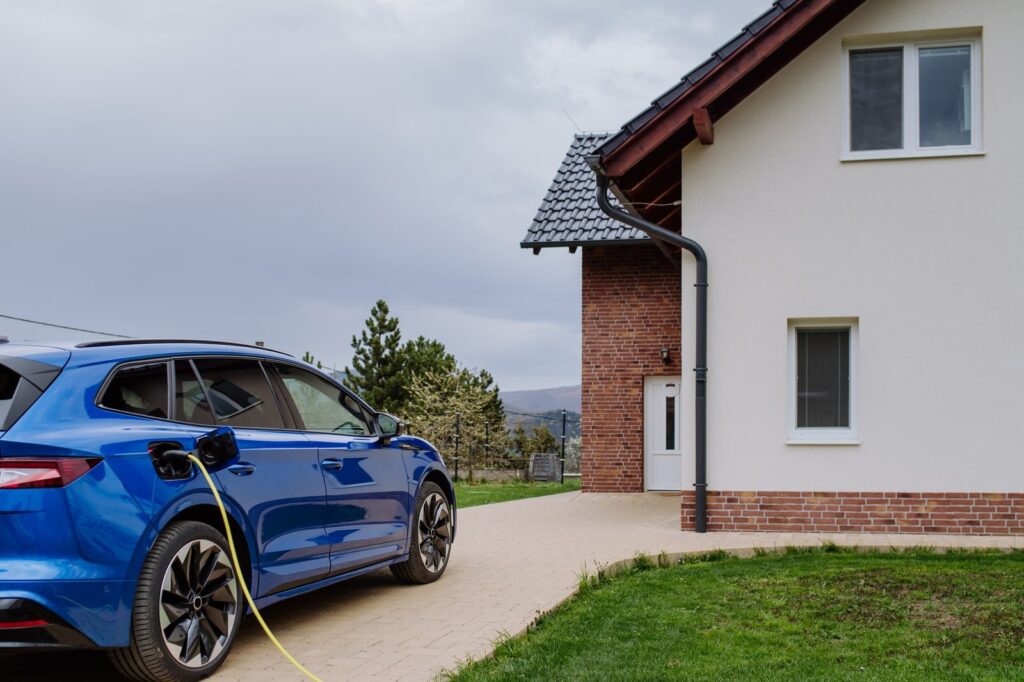
What are the differences between Level 1, Level 2, and Level 3 charging stations?
- Level 1: Standard household outlet (120V). Adds 3-5 miles of range per hour.
- Level 2: 240V outlet (like a clothes dryer). Adds 20-40 miles of range per hour.
- Level 3 (DC Fast Charging): High-powered, mainly for public stations. Adds hundreds of miles of range in under an hour.
How does the power of the charging station (3kW, 7kW, 22kW…) affect charging time?
- Higher power (kW) = faster charging. A 7kW charger will charge roughly twice as fast as a 3.5kW charger.
- Your EV’s onboard charger has a maximum acceptance rate. A more powerful charger won’t charge faster than this limit.
What type of charging station can my home’s electrical meter and wiring support?
- Level 2 chargers often require a dedicated 240V circuit.
- Your electrical panel may need an upgrade to handle the added load.
- A qualified electrician should do a thorough evaluation.
Tethered (with charging cable) and Untethered (without charging cable) charging stations, which is more convenient?
- Tethered: Cable is permanently attached. More convenient for daily use.
- Untethered: You use your EV’s own cable. More flexible if you have multiple EVs with different connector types.
What types of connectors (Type 1, Type 2, CHAdeMO, CCS) are there for charging stations, and how do I match them with my electric vehicle?
- Type 1 (J1772): Common in North America and Japan.
- Type 2 (Mennekes): Standard in Europe.
- CHAdeMO: DC fast charging standard, mainly used by Japanese EVs.
- CCS (Combined Charging System): DC fast charging standard, becoming more common.
- Type 1 and Type 2 connectors can usually be converted with a connector, but CHAdeMO and CCS have different conversion requirements.
Your EV’s manual will specify the connector type. The charging station must match.
How Much Does it Cost to Install a Home Electric Vehicle Charging Station?
Problem: You’re interested in knowing the cost, but unsure about hidden fees or potential subsidies.
Answer: Expect to pay for the charger itself (a few hundred to over a thousand dollars) plus professional installation. Costs vary based on your home’s electrical setup.
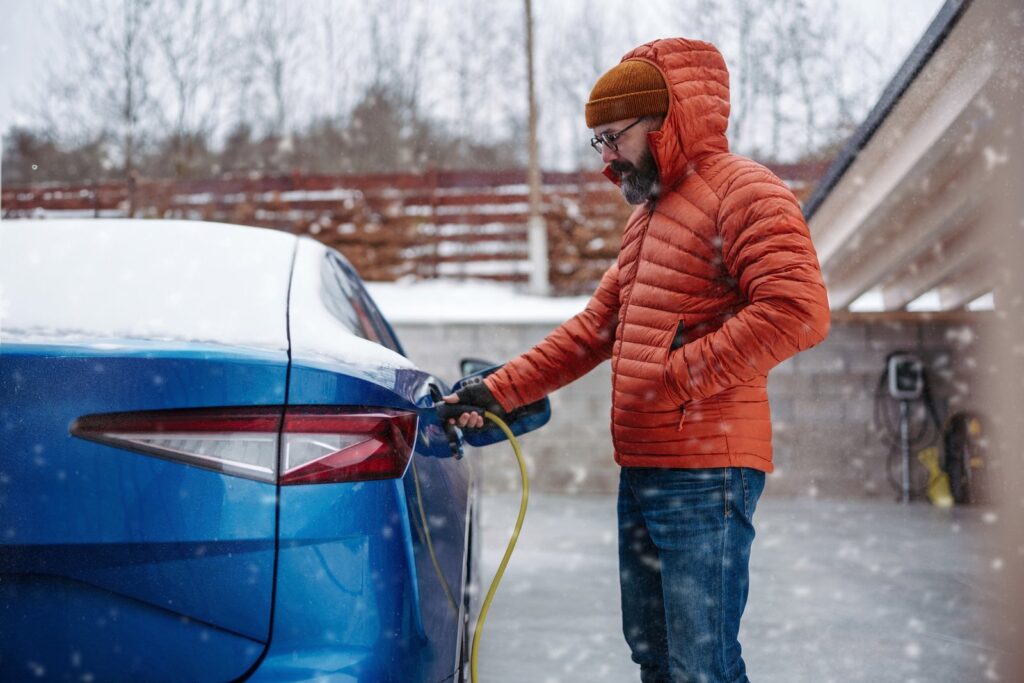
What is the approximate price of the charging station equipment itself?
- Level 1: Usually comes with the car.
- Level 2: 300−300 – 300−1,500+, depending on features (smart capabilities, power output).
What items are usually included in the installation costs?
- Labor by a qualified electrician.
- Permitting fees (may be required).
- Potential electrical panel upgrade.
- Wiring and conduit from the panel to the charger location.
Will my home’s situation (such as electrical meter capacity, wiring distance) increase the installation cost?
- Yes. A longer wiring run, or the need for a panel upgrade, will add to the cost.
Are there government subsidies or preferential policies that can help me save money?
- Yes! Check for federal, state, and local incentives (tax credits, rebates).
- Your utility company may also offer rebates or special EV charging rates.
How do I find a reliable charging station installation service provider?
- Get quotes from multiple licensed electricians with EV charger experience.
- Check online reviews and ratings.
- Ask for references.
What Are the “Hidden” Benefits of Home Charging Stations?
Problem: You think it is just about charging your car, but are there extra values you haven’t considered?
Answer: Beyond convenience, home charging can save you money, integrate with smart grids, and even increase your home’s value.
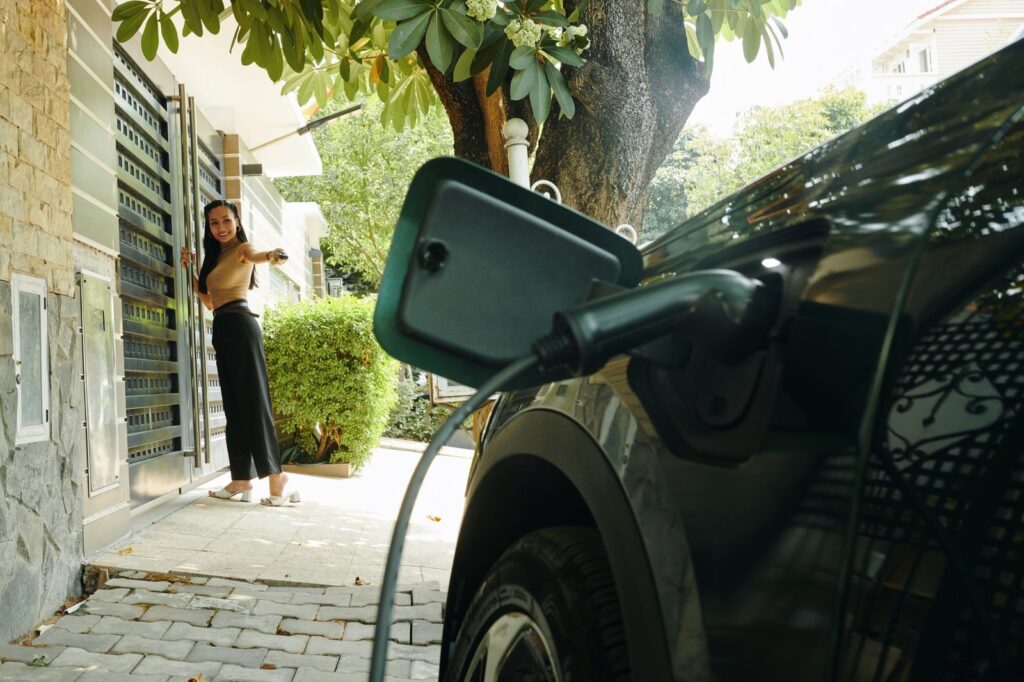
Besides convenience, can a home charging station help me save money?
- Off-Peak Charging: Many utilities offer lower electricity rates during off-peak hours (nights, weekends). Smart chargers can be programmed to take advantage of this.
- Reduced Public Charging Costs: DC fast charging, in particular, is often more expensive than home charging.
How can I use a home charging station and a smart grid to achieve more economical charging?
- Smart Chargers: Connect to Wi-Fi, allowing for scheduled charging, remote control, and data tracking.
- Demand Response Programs: Some utilities offer incentives to EV owners who allow them to briefly adjust charging during peak demand periods.
- Solar Integration: If you have solar panels, a smart charger can prioritize using your self-generated solar energy.
Can a home charging station increase the value of my house?
- Yes, a professionally installed EV charger can be a desirable feature for potential homebuyers.
What is special about home charging stations that support V2G (Vehicle-to-Grid)?
- V2G Technology: Allows your EV to not only draw power from the grid, but also send it back.
- Potential Benefits: Grid stabilization, earning money by selling energy back to the grid (future possibility).
What Preparatory Work Do I Need to Do to Install a Home Charging Station?
Problem: You’re ready to install, but unsure of the steps. Do you call the power company first?
Answer: Start with an electrician to assess your home’s power situation. If you’re renting, get permission.
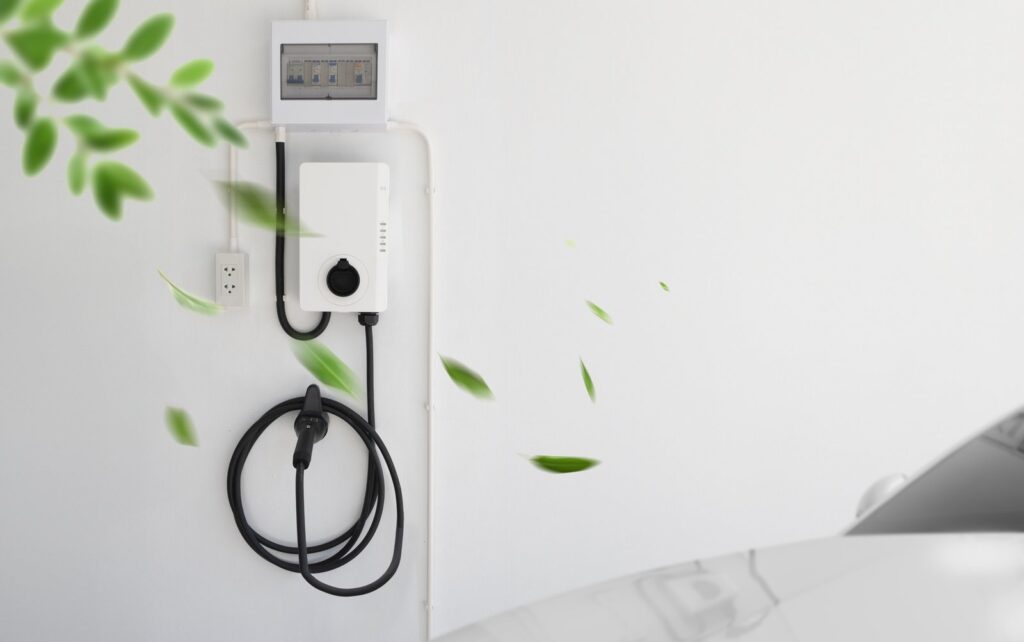
Do I need to contact the power company in advance?
- It’s not always required, but it’s a good idea to inform them, especially if you’re installing a higher-powered Level 2 charger.
- They can advise on any potential grid upgrades needed in your area.
Do I need to hire an electrician to assess my home’s power situation?
- Yes, this is essential for a safe and compliant installation.
- They’ll determine if your electrical panel can handle the added load, and if any upgrades are needed.
If I am renting or living in an apartment, can I install a home charging station?
- You’ll need permission from your landlord or property management.
- There may be restrictions or shared charging options available.
What do I need to do to maintain my charging station after installation?
- Generally, very little maintenance is required.
- Keep the connector clean and inspect the cable for any damage.
- Follow the manufacturer’s recommendations.
Conclusion
A home EV charger isn’t strictly necessary to own an electric vehicle, but it’s a game-changer. It offers convenience, potential cost savings, and control that most EV owners wouldn’t want to live without.As a high-quality manufacturer of electric vehicle charging products, TX produces products that are safe, environmentally friendly, and have superior performance. If you have any needs, please feel free to contact us.

